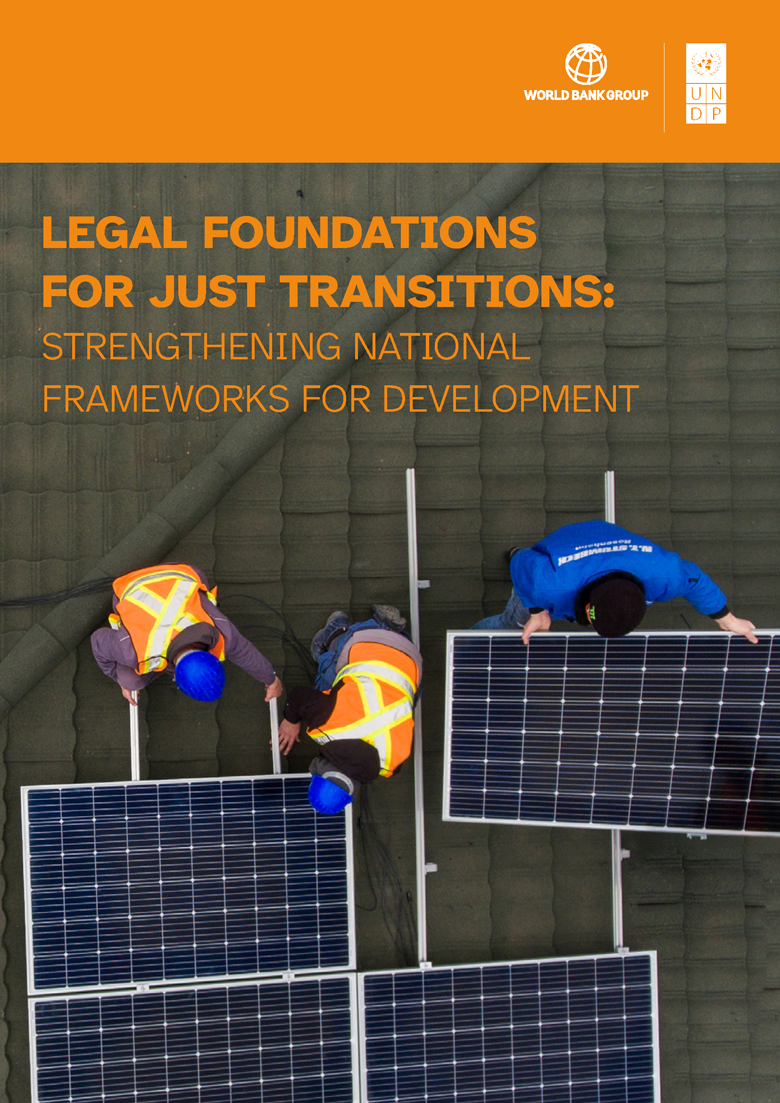Environmental Justice (EJ) emphasizes fairness and equity in environmental decision-making and solutions, including by ensuring that marginalized and vulnerable communities do not bear a disproportionate share of environmental harms. While EJ originally started as a social movement, it has evolved into a legal and development framework that supports access to information on environmental matters, public participation in environmental policymaking, access to justice in environmental matters, and the realization of the right to a clean, healthy, and sustainable environment. In development contexts, EJ offers important lens for evaluating and understanding how environmental degradation intersects with poverty, inequality, human rights, and the Sustainable Development Goals (SDGs). In the legal realm, EJ serves as a key tool for evaluating how laws and policies may disproportionately affect groups in vulnerable or marginalized situations, while promoting inclusive governance to ensure fair distribution of environmental benefits and burdens, particularly in climate change, pollution, and biodiversity conservation issues.
The Environmental Justice Working Group
The Environmental Justice Working Group (EJWG) is a collaborative initiative under the umbrella of the Global Forum on Law, Justice and Development (GFLJD), hosted by the World Bank Legal Vice Presidency. Co-chaired by the World Bank, the United Nations Environment Programme (UNEP), and the United Nations Development Programme (UNDP), the EJWG brings together governments, civil society, academia, development institutions and the private sector by providing a collaborative platform for stakeholders to examine the legal, policy, and operational aspects of EJ in development contexts, foster dialogue and learning, promote actionable solutions for inclusive development, and advance the achievement of the SDGs, particularly SDG 16.
The Objectives of the EJWG include:
Promoting the achievement of the SDGs by supporting the integration of EJ into development interventions, operations, and policy frameworks.
- Fostering constructive dialogue and collaboration on complex EJ issues and pressing environmental challenges among diverse stakeholders, including through learning and knowledge-sharing.
- Proposing practical tools for development stakeholders to advance the legal, policy, and operational dimensions of EJ and improve the effectiveness and equity of development practices.
- Contributing to the GFLJD mission by equipping stakeholders with tools to promote the rule of law, environmentally and socially sustainable development, access to justice in environmental matters, and inclusive development aligned with international development policies, international law, and international standards.
EJWG Activities
These objectives are pursued through activities and initiatives structured around three core pillars:
Focus: Supporting the fulfillment of environmental rights, including by mapping and analyzing environmental rights in existing and emerging national legal frameworks and international conventions (e.g., Aarhus Convention, Escazú Agreement), facilitating dialogue and sharing best practices, providing legal and policy recommendations, offer technical assistance to support capacity building, and addressing barriers to the adoption and implementation of environmental rights.
Focus: Strengthening national legal foundations and enforcement mechanisms for EJ, including through legal assessments and review of the clarity, accessibility, and enforcement of environmental laws, analysis of legal safeguards for protecting environmental defenders; contributions to capacity building on environmental law enforcement, responsible business conduct, environmental and human rights due diligence, crime prevention, and environmental dispute resolution; and developing and sharing knowledge to promote dialogue and learning.
Focus: Advancing research and convening activities to deepen understanding and foster dialogue on legal and policy aspects of climate justice, including through analysis of disproportionate climate impacts on vulnerable communities and equitable distribution of climate-related burdens and benefits; promoting fair distribution of risks and opportunities through support for mitigation and adaptation strategies; applying a people-centered approach that highlights interconnections between human rights, environmental protection, and sustainable development; and facilitating knowledge exchange and partnerships to contribute to SDG 16 (Peace, Justice, and Strong Institutions).
Webinars and Events:
The International Court of Justice’s Advisory Opinion on Climate Change: Overview and Implications for Development (July 31, 2025)
Summary: On July 23, 2025, the International Court of Justice (ICJ) issued its Advisory Opinion on Climate Change, addressing key legal questions related to the international legal obligations of States to mitigate and adapt to climate impacts. The Advisory Opinion is expected to set a global legal benchmark for climate action and potentially influence international development, including States’ duty to align domestic policies with clarified international obligations and their ability to mobilize financial resources for climate-resilient development. This event, co-organized by the World Bank Legal Climate Change Thematic Working Group, the EJWG, and the Human Rights and Sustainable Development Working Group of GFLJD, reflected on the ICJ’s conclusions and the Advisory Opinion’s broader implications for international development. Alongside the ICJ Advisory Opinion, the panel also reflected on recent advisory opinions from the International Tribunal for the Law of the Sea and the Inter-American Court of Human Rights, which clarify States’ obligations with respect to climate change under law of the sea and international human rights law.
- Reference: Obligations of States in Respect of Climate Change (Advisory Opinion)
Leveraging National Legal Frameworks for a Just Transition (November 4, 2025)
As part of Law, Justice and Development Week 2025, the EJWG organized a roundtable discussion to unpack the findings of the WBG-UNDP report "Legal Foundations for Just Transitions: Strengthening National Frameworks for Development. The report provides recommendations to embed just transition principles into national legal frameworks and highlights their relevance to operations of development insitutions and governments. Find more details on this event and watch the replay here.
Current EJWG Members:
- World Bank Legal Vice Presidency
- United Nations Development Programme (UNDP)
- United Nations Environment Programme (UNEP)
EJWG Co-Chairs:
- Remi Moncel, Senior Counsel, World Bank
- Sean O'Connell, Policy Specialist on Rule of Law, Security and Human Rights, UNDP
- Soo-Young Hwang, Legal Officer, UNEP
Additional Participants:
- Bastian Gonzalo Pasten Delich, Senior Counsel, World Bank
- Fabiano De Andrade Correa, Senior Counsel, World Bank
- Dae Rubinos, Counsel, World Bank
- Tomkeen Mobegi, ET Consultant, World Bank
- Tejas Rao, Consultant, World Bank
- Revai Makanje Aalbaek, Global Lead for Rule of law Justice and Security, UNDP
- Roman Meier, Justice Analyst, UNDP
- Juliana Almeida, Special Assistant to the Law Director, UNEP
